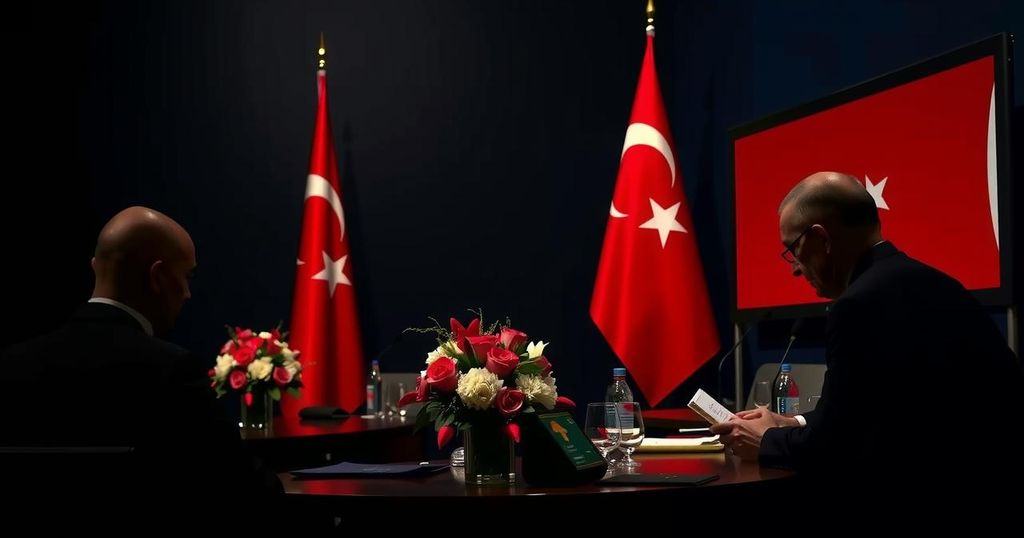Turkey reiterated its commitment to strengthening ties with Africa during a recent summit in Djibouti, attended by representatives from fourteen African nations. Turkish Foreign Minister Hakan Fidan reported significant trade and investment figures, emphasizing Turkey’s interest in fostering economic partnerships. The summit also addressed broader issues, including reforms in the United Nations and Africa’s role in the Israel-Palestine conflict, with the next Turkiye-Africa Summit scheduled for 2026.
During a recent summit held in Djibouti, Turkey reaffirmed its commitment to strengthening ties with African nations, emphasizing the need for increased diplomatic support for Palestine. This gathering coincided with Turkey’s ongoing efforts to deepen relations in Africa, marked by substantial investments and diplomatic engagements over the past two decades under President Recep Tayyip Erdogan, who has visited 31 countries across the continent. The ministerial meeting was attended by representatives from fourteen African countries including Angola, Egypt, Nigeria, and South Sudan. Turkish Foreign Minister Hakan Fidan reported that trade between Turkey and Africa exceeded $35 billion in the previous year, with direct investments from Turkey reaching $7 billion. He stated, “Turkey is employing a comprehensive and holistic approach in terms of enhancing our trade and economic partnership with the continent.” In addition to economic collaboration, Turkey has emerged as a significant arms supplier to sub-Saharan Africa and has participated in training military forces in various African states. Recent diplomatic efforts have included mediating tensions between Ethiopia and Somalia and forming a mining partnership with Niger. Furthermore, Minister Fidan advocated for the African Union to gain permanent membership in the G20 and called for reforms in the United Nations Security Council. He asserted that such reforms are essential for addressing contemporary global challenges. Fidan also highlighted Africa’s potential role in the Israel-Palestinian conflict, stating, “We believe that Africa can play an instrumental role in supporting the Palestinian cause and in stopping Israel.” He acknowledged the commitment of certain African countries to the Palestinian cause, specifically referencing South Africa’s recent actions in the International Criminal Court regarding alleged human rights violations by Israel. The next Turkiye-Africa Summit is scheduled to occur in 2026, emphasizing Turkey’s long-term focus on fostering partnerships within the region.
This article discusses the recent African summit hosted by Turkey in Djibouti, highlighting Turkey’s strategic interest in enhancing its relationships with African nations. Over the past twenty years, Turkey has invested significantly in Africa, both in economic terms and in terms of political influence. The summit reflects Turkey’s broader goals of promoting trade, security, and diplomatic collaboration in Africa, particularly in the context of ongoing international issues such as the Israel-Palestine conflict. Turkey’s position as a growing player in Africa, alongside its call for reforming important global institutions, speaks to its ambitions on the world stage and its commitment to fostering alliances in the region.
The recent summit in Djibouti underscores Turkey’s dedication to deepening its ties with Africa through enhanced trade, investment, and political engagement. With a focus on critical issues such as the Israel-Palestinian conflict and advocacy for the inclusion of the African Union in global decision-making forums, Turkey aims to solidify its position as a key partner in Africa. The anticipated follow-up in 2026 illustrates Turkey’s ongoing commitment to this relationship.
Original Source: www.voanews.com






